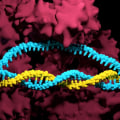The ethical design of clinical trials was, by far, the ethical topic most cited by our editorial board, Protecting Human Subjects in Clinical Trials. Defending the United States against bioterrorism. Biotechnology involves genetic engineering and DNA-based research that can be lethal to humanity and includes various ethical, legal and social issues. This concern is perhaps the most cited by those who oppose GMOs.
It is very difficult to predict what will happen in an ecosystem where a new organism, genetically modified or not, has been introduced. Governments are concerned that terrorists will use biotechnology to create new superbugs, infectious viruses or toxins for which we have no cure. According to the CDC, bioterrorism occurs when viruses, bacteria, or other germs are intentionally released to harm or kill people, plants, or livestock. The agency says that the agent most likely to be used in an attack is anthrax, a serious illness caused by bacteria found naturally in soil.
Biotechnology is a constantly evolving field of science. While it has many benefits, such as reducing our environmental footprint and helping to treat diseases and ailments, it's not without its drawbacks. The four main concerns revolve around ethical, security, bioterrorism and environmental issues. Therefore, the rules on topics such as stem cell research, the patenting of genetic inventions and the development of new drugs are constantly changing.
Human and animal clinical trials to manufacture new vaccines or drugs are also responsible for creating ethical problems. The ethical issues that arise from modern biotechnologies include the availability and use of privileged information, the potential for ecological damage, access to new drugs and treatments, and the idea of interfering with nature. However, this project may pose ethical, social and legal problems due to technological advances in DNA and genome research.






